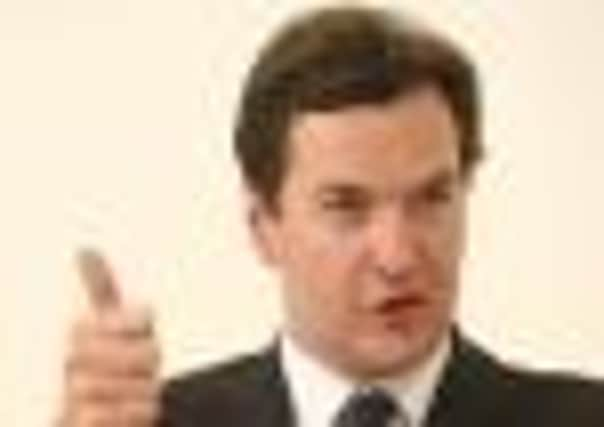Leaders: Loosen the purse strings


Regardless of the economic arguments over the effectiveness of the tax, it will be seen as a symbolic shift which could come to be a leitmotif of this Conservative-led administration. It helps the wealthy and will be seen as a clear pointer to where Tory allegiances lie. What is unclear is just how the Chancellor will balance this giveaway with measures to cut down on tax evasion by the wealthy. Aides to deputy prime minister Nick Clegg are trying to present a proposed basket of such measures as a “tycoon tax”, but whether or not this is a coherent or convincing counterbalance remains to be seen. The early raising of the personal allowance might also form part of the Lib Dem claims of counterbalance, but the subsequent Osborne proposal, if it comes to be, of different rates of pay for public servants in different parts of the country will just be seen as reinforcing the London-centric anti-worker perception of the Tories.
What must not be lost sight of in all the wrangling is the primary purpose of this Budget – to help lift Britain from the threat of a damaging recession. Since arriving at the Treasury, Osborne has made his priority the paying down of Britain’s crippling debt. By doing so with gusto – some would say far too much gusto – he has succeeded in retaining the confidence of the credit rating agencies which have lately taken an unforgiving view of less disciplined Western economies. However, austerity alone cannot cure the country’s economic ills. Having demonstrated to the markets that he can keep Britain’s finances under control, the challenge for Osborne now is to demonstrate that he can produce the economic growth necessary if we are ever to begin finding our way back to financial health. The time has come for the Chancellor, while continuing to observe his watchword of stability, to place a new emphasis on stimulus. Fiscal conservatism is not enough. Growth requires increased demand, and with signs of economic recovery in the US, the time is right for the Chancellor to loosen the reins a little – even if it goes against his stated aim of a Budget that is revenue neutral.
Advertisement
Hide AdAdvertisement
Hide AdMeanwhile, it will be fascinating to see what the Budget reveals about the power tussle within the ruling coalition between the Tories and the Lib Dems. Clegg badly needs a demonstration of his influence within the government after a year in which he has looked increasingly marginalised – most obviously on Europe and welfare reform. It looks like Clegg will point his supporters to allowances and tycoon tax. Suddenly the coalition leaders both look good, Cameron is tough and pro-enterprise, the Lib Dems temper this by being effective in government and party of the people. This posturing may be a cause for quiet satisfaction in Number 10 and its environs, but Cameron might want to pause and consider how this Tory portrayal plays elsewhere in the kingdom. When Scots are being asked to vote to remain in the UK, it is reasonable for them to ask what the political complexion of a UK government might be. This government is not allaying any deep-seated fears here about the Tories. In fact, Cameron is playing into Nationalist hands. He calls himself a unionist first and foremost. As he signs off the Budget, he might think about that.
General confusion
PERHAPS a foreign power is putting something in the tea that is served to officials in the Ministry of Defence’s imposing headquarters on Whitehall? It would, at least, offer a rational explanation for the serial mishaps that have characterised UK defence procurement and organisational strategy in recent years.
A kind explanation is that war in Iraq and Afghanistan have distracted the top brass from the day-to-day responsibilities of ensuring the UK’s defence capability is sound and durable. It is no excuse.
On top of the infamous mix-up over aircraft carriers with no planes, and planes that are the wrong type for aircraft carriers, comes the news that the masterplan for the army in Scotland following the defence review has been ripped up by new Defence Secretary Philip Hammond. Plans for a super-barracks on the outskirts of Edinburgh have been shelved, amid concerns that the proposed reorganisation of army bases in and around the capital was based on questionable assumptions. There are now doubts about other aspects of the MoD’s Scottish masterplan – most notably, doubling the number of British soldiers based in Scotland.
Confusion and uncertainty in government is never a good thing. In the military, it is unforgivable.